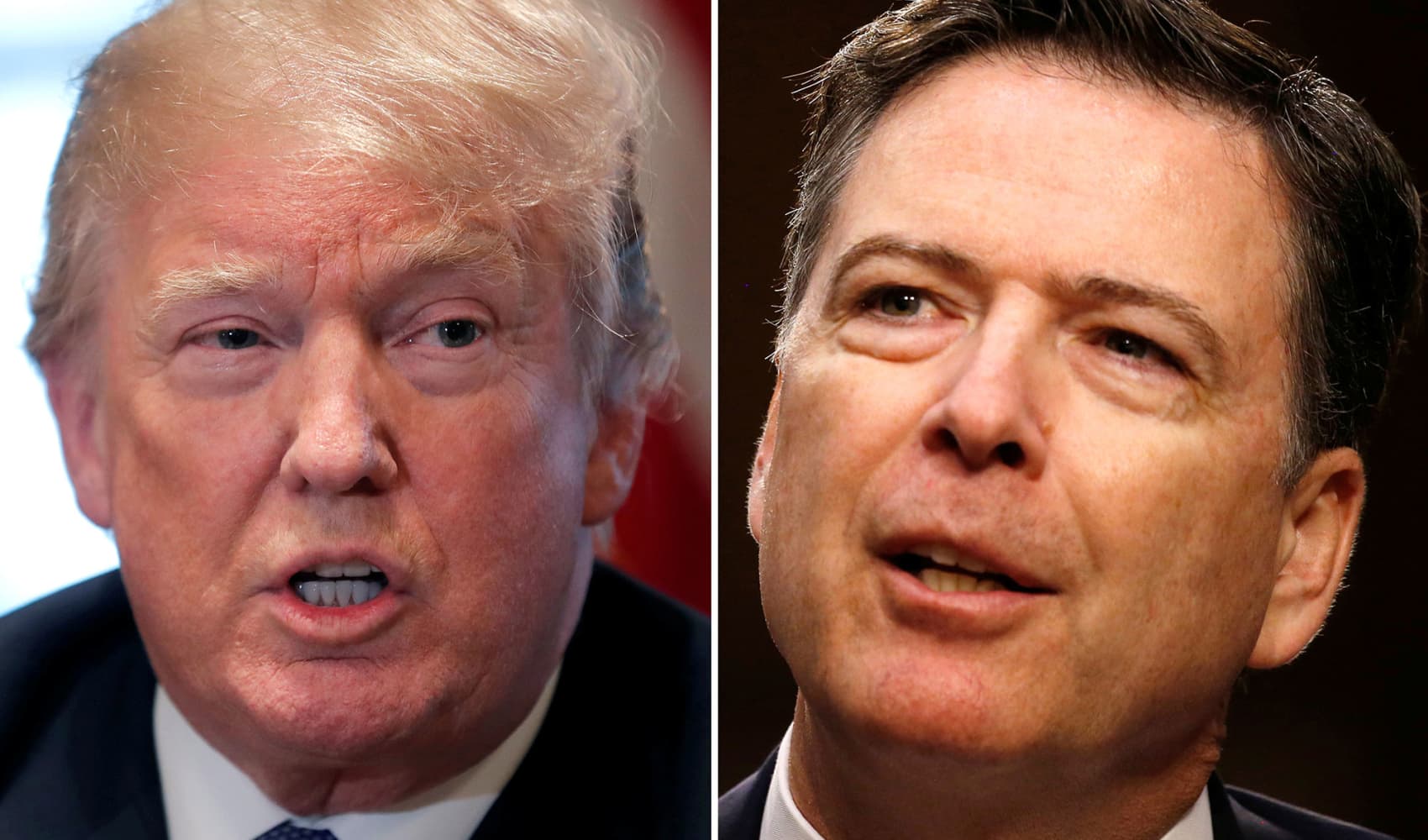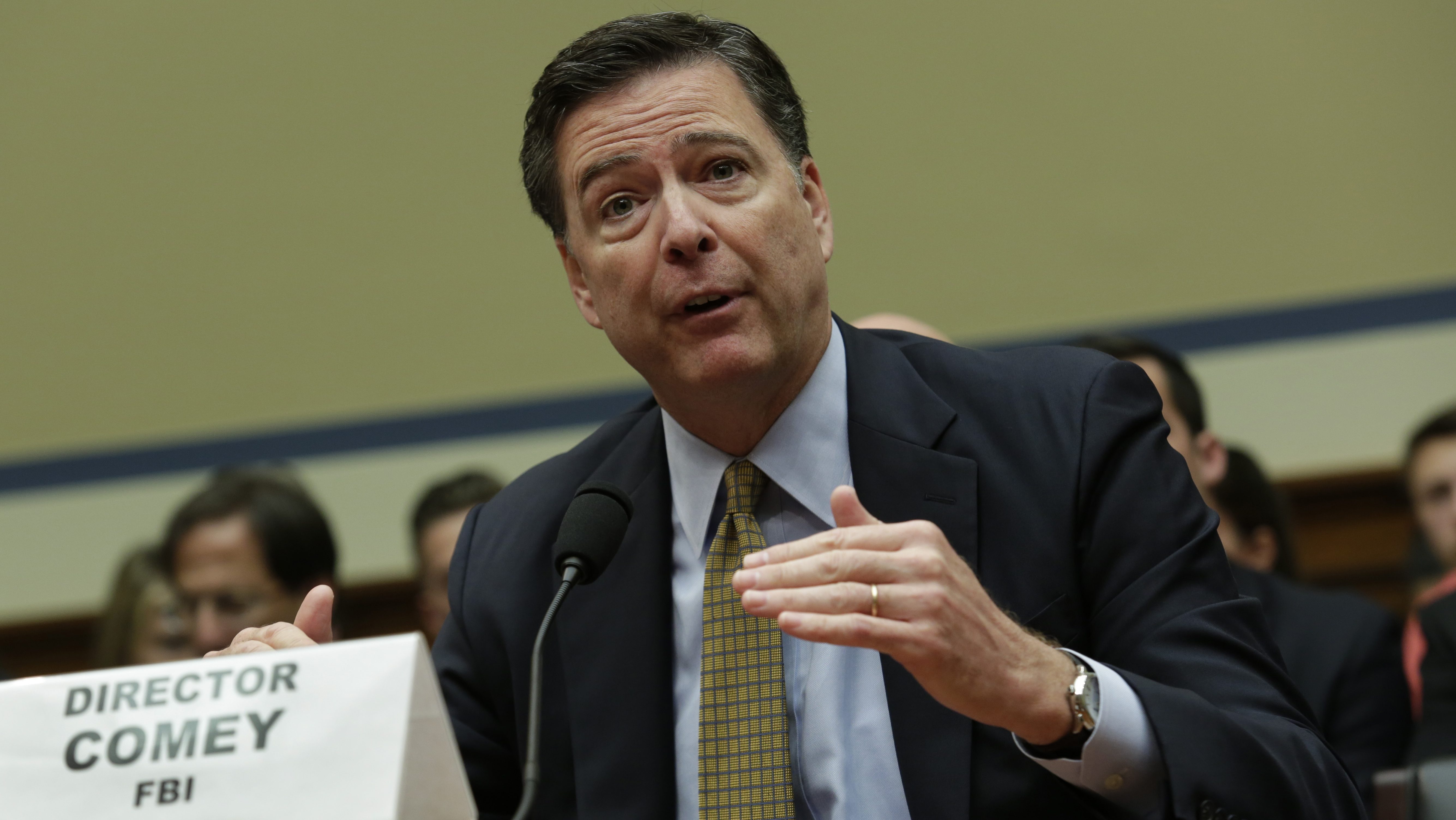Trump: Comey's "8647" Post Called for Assassination!
Trump Accuses Comey: "8647" Post a Presidential Assassination Threat?
Introduction: A Twitterstorm Erupts Over a Number
Hold on to your hats, folks, because things just got spicy in the world of politics! President Donald Trump has accused former FBI Director James Comey of essentially calling for his assassination through a seemingly innocuous Instagram post. Yes, you read that right. According to Trump, the post, featuring the number "8647," was far from innocent. Was this just a harmless coincidence, or something far more sinister? Let's dive in and unravel this political whodunit. Is it a genuine threat, or just another headline-grabbing accusation?
The Infamous "8647" Post: What's the Fuss?
So, what exactly is this "8647" business all about? Well, Comey posted it (and then deleted it), and it quickly caught the attention of those in Trump's inner circle. The interpretation? That "86" means "to get rid of" or "eliminate," and "47" refers to Trump being the 47th president. Therefore, "8647" supposedly meant "get rid of Trump." Pretty explosive stuff, if true. But is it?
The Trump Administration's Interpretation
Members of the Trump administration were quick to jump on the "8647" post, claiming it was a clear call to violence against the president. They argued that Comey, as a former high-ranking law enforcement official, should have known better than to post something that could be interpreted as a threat. But could this be a case of seeing what you want to see, or is there legitimate cause for concern?
Comey's Defense (or Lack Thereof)
As of now, Comey hasn't publicly addressed the specific meaning of the "8647" post. His silence has only fueled the fire, allowing speculation to run rampant. Does he have an explanation, or is he simply choosing to stay out of the fray? It's anyone's guess at this point.
Trump's Explosive Accusation: "Calling for Assassination!"
During an interview with Fox News, President Trump didn't mince words. He stated unequivocally that Comey was "calling for the assassination of the president." That's a pretty serious accusation, wouldn't you agree? He claimed Comey "knew exactly what that meant," implying malicious intent behind the post. These are strong words, and they're bound to have repercussions.
DHS and Secret Service Investigating: Is This a Real Threat?
Given the gravity of the situation, the Department of Homeland Security and the Secret Service have reportedly launched investigations into Comey's post. These agencies are tasked with protecting the president, so any potential threat, no matter how ambiguous, must be taken seriously. Will their investigation uncover any evidence of a credible threat, or will it ultimately be dismissed as political grandstanding?
"86": A Deep Dive into the Slang
Let's explore this "86" slang. It originated in the restaurant industry, meaning to remove an item from the menu or to refuse service to a customer. Over time, it's evolved to mean "get rid of," "eliminate," or even "kill." However, its usage is often playful or metaphorical, not necessarily literal. The question is, in what context did Comey intend it?
The "47" Factor: Referencing the Presidency?
The addition of "47," Trump's position as the 47th president, is what really elevated this from quirky to controversial. Without it, "86" could have been interpreted in countless ways. But the inclusion of "47" points directly to Trump. Was this deliberate, or just a bizarre coincidence?
Social Media's Role in Political Firestorms
This whole situation underscores the power of social media in today's political landscape. A single post, a seemingly innocuous number, can ignite a national controversy. Politicians, officials, and everyday citizens must be mindful of the potential impact of their online actions. Are we all responsible for the words and interpretations that follow our digital footprint?
The Court of Public Opinion: Guilty Until Proven Innocent?
In the court of public opinion, Comey has already been largely judged guilty by many. Trump's supporters see this as further evidence of the "deep state" conspiracy against him, while his detractors may view it as an overblown reaction designed to distract from other issues. But where does the truth lie?
Political Rhetoric: Escalating Tensions or Legitimate Concern?
It's no secret that political rhetoric has become increasingly heated in recent years. Is Trump's accusation an example of this escalation, or is it a legitimate expression of concern for his safety? Perhaps it's a bit of both. It is undoubtedly a calculated move meant to rally support and discredit a political opponent.
The "Deep State" Conspiracy Theory: Alive and Well?
This controversy has breathed new life into the "deep state" conspiracy theory, which posits that unelected officials are working to undermine Trump's presidency. Many believe Comey is a key player in this alleged conspiracy. This raises important questions about the accountability of government officials and the potential for abuse of power.
Impact on the 2024 Election: Fueling the Divide
With the 2024 election looming, this situation is sure to further fuel the political divide. Trump will likely use this as a rallying cry for his supporters, while his opponents will dismiss it as a desperate attempt to stay relevant. Get ready for a bumpy ride, folks, because this is just the beginning.
The Ethics of Social Media for Public Figures
This incident sparks a broader conversation: What ethical standards should public figures adhere to on social media? Should they be held to a higher standard than private citizens, given their platform and influence? This is a complex issue with no easy answers, but it's one we need to grapple with as social media continues to shape our world.
Potential Legal Ramifications: Could Comey Face Charges?
While it's unlikely, there's a slim chance Comey could face legal consequences if the investigations uncover evidence of a credible threat. However, proving intent would be a major hurdle. This highlights the difficulty of prosecuting threats made through ambiguous language or symbolism.
Conclusion: Decoding the Digital Battlefield
The "8647" controversy is a microcosm of the larger political battles playing out in our digital age. It highlights the power of social media, the dangers of escalating rhetoric, and the challenges of interpreting intent in the online world. Whether it's a legitimate threat or political theater, one thing is clear: this story is far from over. The key takeaway is that even seemingly innocuous digital footprints can have significant real-world consequences. Is James Comey guilty of incitement, or is he a scapegoat in the ongoing political divide? Only time, and further investigation, will tell.
Frequently Asked Questions (FAQs)
Here are some frequently asked questions regarding the Trump-Comey controversy:
- What does "86" mean in slang terms?
The term "86" originated in restaurants to signify an item that is no longer available. Over time, it evolved to generally mean "to get rid of," "eliminate," or even "cancel" something or someone.
- Why did President Trump accuse James Comey of calling for his assassination?
Trump interpreted Comey's Instagram post featuring the number "8647" as a coded message advocating for his removal, considering Trump is the 47th president. He believed Comey knew exactly what the post implied.
- Are the Department of Homeland Security and the Secret Service investigating Comey's post?
Yes, due to the perceived threat, the Department of Homeland Security and the Secret Service have reportedly launched investigations to determine the credibility and intent behind Comey's "8647" post.
- Has James Comey responded to President Trump's accusations?
As of the current information, James Comey has not publicly addressed the specific meaning or intention behind the "8647" Instagram post, leaving its interpretation open to speculation.
- Could James Comey face legal charges because of the post?
While it is unlikely, there's a small chance Comey could face legal repercussions if investigators find evidence indicating a credible and intentional threat against the President. However, proving malicious intent would be a significant legal challenge.

